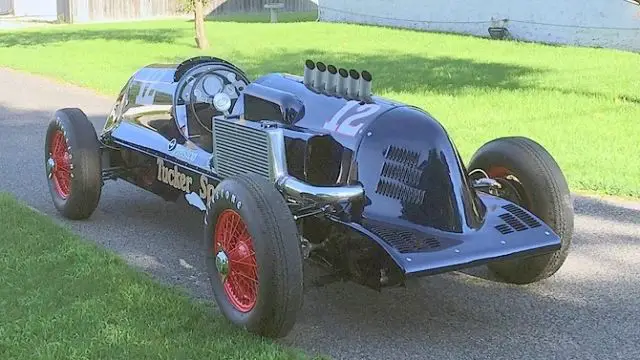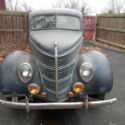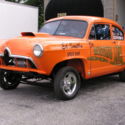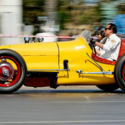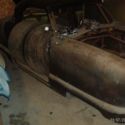1938 GULF MILLER, ONE-OF-A-KIND VINTAGE RACE AND/OR STREET ROD
| Make: | Other Makes |
| Model: | INDIANAPOLIS RACE CAR |
| Type: | Indy speedster |
| Year: | 1938 |
| Mileage: | 12 |
| VIN: | 195715 |
| Color: | Medium metallic blue |
| Engine: | 1986-90 Jaguar in-line 6 |
| Cylinders: | 6 |
| Fuel: | Gasoline |
| Transmission: | Borg Warner automatic |
| Drive type: | RWD |
| Interior color: | Dark red & aluminum |
| Vehicle Title: | Clear |
| Item location: | Tulsa, Oklahoma, United States |
1938 Other Makes INDIANAPOLIS RACE CAR Additional Info:
An alloy-bodied recreation of Harry Miller's most beautiful, if not most successful, Indy roadster. Ax exact dimensional copy of theonly remaining original Gulf-Miller Special (in the Indy Museum.) Painstakingly recreated from the ground-up, with each part hand-machined and hand-formed. Approximately 4000 hours in the build. Features an aluminum inline Jaguar 6 cylinder engine, with a ZF automatic transmission.
A true one-of-a-kind. ThreeGulf-Millers were originally constructed. Two were destroyed in fires (one killing its driver.) The sole survivor is exhibited in the Indianapolis Motor Speedway Museum, andhas beenfeatured at the Amelia Island concours.
This is the closest one can get to the 1938 build Gulf Miller. Some liberties have been taken for safety and reliability (eg. ventilated disc brakes.) STREETABLE and ready to enjoy, as a weekend driver, in a collection, or on the race track. To the latter end, an SVRA logbook is available.
Harry Miller, an American race car designer and builder, was most active in the 1920's and 1930's. One writer called him "the greatest creative figure in the history of American car racing." His cars won Indianapolis nine times, and his engines won three additional races. Between 1923 and 1928, Miller cars accounted for 83% of the entire Indy race fields!
Miller was a visionary and innovator. He developed the first aluminum piston andthe first4-wheel drive race car. Fred Offenhauser was Miller's shop foreman & chief machinist prior to Miller's 1933 bankruptcy, at which time Offenhauser took over Miller's shop.
In 1935 Miller joined with Indy 500 enthusiast, Preston Tucker, to structure a new company: Miller & Tucker. After the first rear-engined car appeared at Indy in 1937 but did not qualify, the new company built three cars for the 1938 event. But they arrived too late to qualify. Gulf-Millers did qualify & compete at Indy in 1939, 1940 and 1946.
The last photo is the actual car that's in the Indy Museum.



